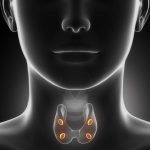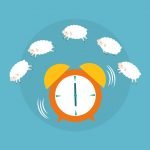Getting Closer to a Targeted Treatment for Alzheimer’s
NODE SMITH, ND
A new University of Arizona Health Sciences study found women on hormone therapy were up to 58% less likely to develop neurodegenerative diseases including Alzheimer’s disease, and reduction of risk varied by type and route of hormone therapy and duration of use. The findings could lead to the development of a precision medicine approach to preventing neurodegenerative diseases.
The study, published in Alzheimer’s & Dementia: Translational Research & Clinical Interventions, found that women who underwent menopausal hormone therapy for six years or greater were 79% less likely to develop Alzheimer’s and 77% less likely to develop any neurodegenerative disease.
“This is not the first study on the impact of hormone therapies on neurodegenerative disease reduction,” said Roberta Diaz Brinton, PhD, director of the UArizona Center for Innovation in Brain Science and senior author on the paper. “But what is important about this study is that it advances the use of precision hormone therapies in the prevention of neurodegenerative disease, including Alzheimer’s.”
Hormone therapy is the most effective treatment for the symptoms of menopause, which can include hot flashes, night sweats, insomnia, weight gain and depression. During the study, Dr. Brinton and the research team examined the insurance claims of nearly 400,000 women aged 45 and older who were in menopause.
They focused on the effects of individual U.S. Food and Drug Administration-approved hormone therapy medications, including estrogens and progestins, and combination therapies on neurodegenerative diseases. Additionally, they evaluated the impacts of the type of hormone therapy, the route of administration — oral vs. through the skin — and the duration of therapy on the risk of developing disease.
They found that using the natural steroids estradiol or progesterone resulted in greater risk reduction than the use of synthetic hormones. Oral hormone therapies resulted in a reduced risk for combined neurodegenerative diseases, while hormone therapies administered through the skin reduced the risk of developing dementia. Overall risk was reduced the most in patients 65 years or older.
Additionally, the protective effect of long-term therapy lasting longer than one year on Alzheimer’s, Parkinson’s disease and dementia was greater than with short-term therapy of less than one year.
“With this study, we are gaining mechanistic knowledge. This reduction in risk for Alzheimer’s disease, Parkinson’s and dementia means these diseases share a common driver regulated by estrogen, and if there are common drivers, there can be common therapies,” said Dr. Brinton, who has researched neurodegenerative diseases and the aging female brain for more than 25 years. “The key is that hormone therapy is not a treatment, but it’s keeping the brain and this whole system functioning, leading to prevention. It’s not reversing disease; it’s preventing disease by keeping the brain healthy.”
Dr. Brinton recently co-authored another paper led by researchers at Weill Cornell Medicine and published in Scientific Reports. Those findings demonstrated that the menopausal transition stage has pronounced effects on the brain’s structure, connectivity and energy metabolism, and provides a neurological framework for both vulnerability and resilience.
Neurodegenerative diseases associated with aging are a major public health concern as the proportion of populations aged 65 and older increase. There is no known cure for Alzheimer’s disease, which affects more than 5.5 million people in the United States.
1. Yu Jin Kim, Maira Soto, Gregory L Branigan, Kathleen Rodgers, Roberta Diaz Brinton. Association between menopausal hormone therapy and risk of neurodegenerative diseases: Implications for precision hormone therapy. Alzheimer’s & Dementia: Translational Research & Clinical Interventions, 2021; 7 (1) DOI: 10.1002/trc2.12174

Node Smith, ND, is a naturopathic physician in Humboldt, Saskatchewan and associate editor and continuing education director for NDNR. His mission is serving relationships that support the process of transformation, and that ultimately lead to healthier people, businesses and communities. His primary therapeutic tools include counselling, homeopathy, diet and the use of cold water combined with exercise. Node considers health to be a reflection of the relationships a person or a business has with themselves, with God and with those around them. In order to cure disease and to heal, these relationships must be specifically considered. Node has worked intimately with many groups and organizations within the naturopathic profession, and helped found the non-profit, Association for Naturopathic Revitalization (ANR), which works to promote and facilitate experiential education in vitalism.










